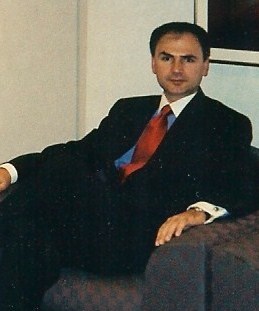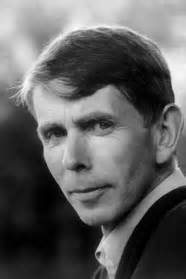A Quote by George Harrison
Part of Krishna consciousness is trying to tune in all the senses of all the people: to experience God through all the senses, not just by experiencing Him on Sunday, through your knees by kneeling on some hard wooden kneeler in the church.
Related Quotes
When I find that I am more conscious, it's because I'm in tune with a higher reality. When I'm less conscious, it's because I've cut off that entunement to some extent. Maybe through drinking, through anger, through whatever. And I realized then that God has to be an infinite consciousness, and that I had to be an expression of that consciousness. And that the goal of life then must be to become more and more in tune with that consciousness. And I decided to give my life to God. And around that time, to make a long story short, I found Autobiography of a Yogi.
Why all this insistence on the senses? Because in order to convince your reader that he is THERE, you must assault each of his senses, in turn, with color, sound, taste, and texture. If your reader feels the sun on his flesh, the wind fluttering his shirt sleeves, half your fight is won. The most improbable tales can be made believable, if your reader, through his senses, feels certain that he stands at the middle of events. He cannot refuse, then, to participate. The logic of events always gives way to the logic of the senses.
As I look around on Sunday morning at the people populating the pews, I see the risk that God has assumed. For whatever reason, God now reveals himself in the world not through a pillar of smoke and fire, not even through the physical body of his Son in Galilee, but through the mongrel collection that comprises my local church and every other such gathering in God’s name. (p. 68, Church: Why Bother?)
The things of God are understood by the Spirit of God. That Spirit is real. To those who have experienced its workings, the knowledge so gained is as real as that received through the operation of the five senses. I testify of this. . . . I urge you to continue throughout your lives to cultivate a heart in tune with the Spirit. If you do so, your lives will be enriched. You will feel a kinship with God our Eternal Father. You will taste the sweetness of joy that can be had in no other way.
Proust writes, he remembers, physically. He depends on his body to give him the information that will bring him to the past. His book is called 'In Search of Lost Time,' and he does it through the senses. He does it through smell. He does it through feeling. He does it through texture. It is all physically driven, that language.




































